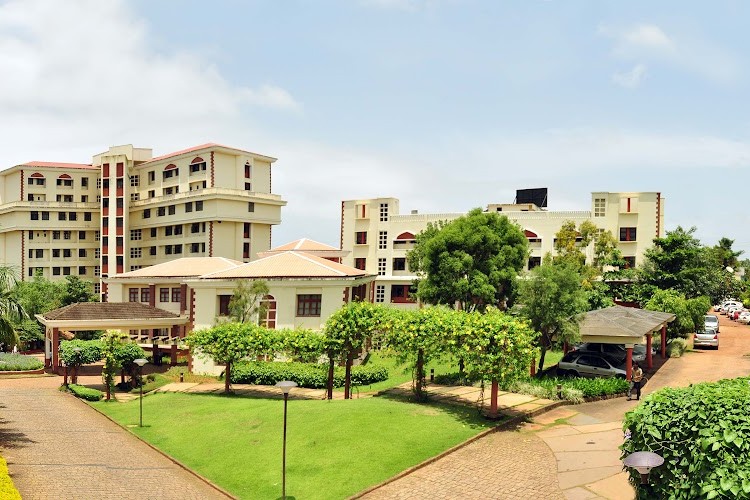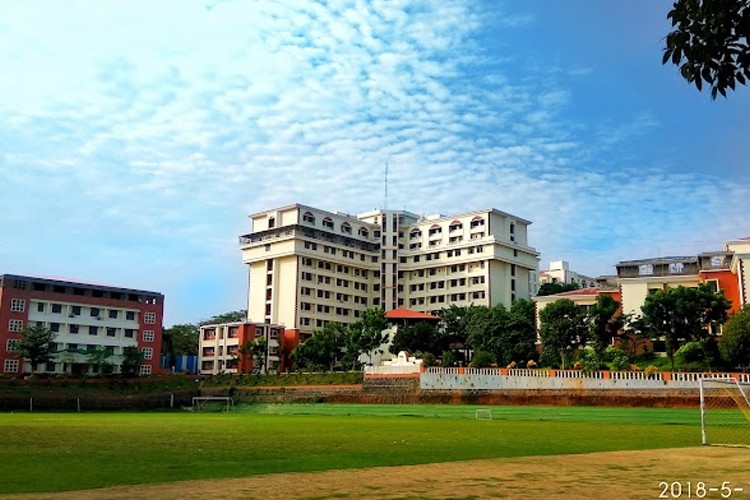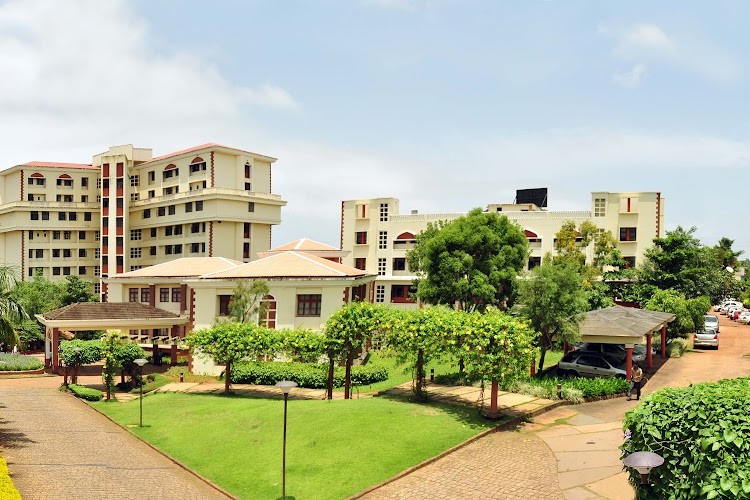About Campus life
Yenepoya University gives environmental education through awareness related programs. The university is engaged in self-sustainable eco-friendly initiatives and encourages the youth to be conscious of their surroundings. The university's commitment to having a plastic-free, clean and green campus shows its eco-friendly stance. The campus is being developed using green principles, with a special focus on conserving water and through solid waste management.
Hostels: In the scenic surroundings, the university has 13 separate hostels for men and women, providing top-notch amenities to its students. Female students can stay in the Zuleka and other hostels located in the B & C blocks, while male students can stay in the Fatima, BRU, Hassan and other hostels located in the A block. Each dormitory room is furnished and supplied with the essential items, the UG hostels have air conditioning facilities available upon request, and PG hostels are air-conditioned. The hostels have a fitness gym, a laundry facility, a Flat - screen TV, Wi-Fi, drinkable water, and connected dining areas. The food kiosk and coffee store is also there inside the hostel to use it.
The hostel's protection is constantly being checked by security staff, and wardens are always on site. All of the hostels have CCTV cameras for surveillance and the department of health performs pest control procedures within and outside the hostel. The proper cleaning of the dormitories is done by maintenance staff.
Library: The college library began in 1992, but by 2008 it had evolved and changed into a central library of the university. The central library also has constituent units and departments libraries. The main hub of knowledge is the central library, which is situated in a separate air-conditioned structure. It can connect and share things to meet the demands of instructors, scholars, and students in terms of education. Novels, periodicals, e-resources, and ancient scripts are among the library's assets. It offers off-campus access 24 hours a day to a variety of e-books, e-journals, and online databases bases.
Sports: The University has built a top-notch infrastructure to meet the needs for athletic and leisure activities. The facilities include an indoor facility with areas for TT, BB, Volley, Squash, and other sports. The indoor stadium is built such that it could be used as an indoor auditorium with seating for about 5K people. This building is frequently utilized to host large-scale gathering programs, convocations, and cultural activities. The grass soccer field, Throw ball, Cricket practice nets, Kabbaddi, and athletics facilities are among the outdoor sports facilities.
Differently abled access: It features a free environment that is accessible to people with disabilities, allowing both staff and students to use the services in an independent manner. The university has put slopes, ramps, and elevators into every classroom for simple access. The lift contains Braille signs that can assist the disabled in finding the locations they need to go to on a daily basis. In order to better accommodate disabled people, the university offers disabled-friendly toilets in each of its campus locations.
Students Council: The council members are active in promoting recreational activities like athletics, literature events, cultural festivals, and NSS. They also conduct orientation programs and extracurricular activities, such as quiz contests, cleanliness and wellness camps, raising awareness of the environment, and anti-ragging initiatives.
Kara Seva: Through the delivery of lectures on menstrual hygiene, this effort makes sure to avoid common illnesses in the students of public schools.
Visual Art Club: It offers a space for showcasing artistic abilities in painting and photography.
Cancer Awareness Outreach Program: Students from all academic programs of the university routinely take part in this, which is an initiative to raise community awareness through the NSS.



